Green Healthcare Sustainability Posters
Spread the word and with these posters on positive climate action. There are 6 to choose from and are A3 in size.
Clean water is an important resource for hospitals. It is used in multiple locations (e.g. wards, canteens, toilets) and for many different functions (e.g. dialysis, drinking, cleaning). In general, as long as water is there when it is needed, people tend not to worry too much about it. However, every litre of water that is paid for may not reach its intended tap, toilet or shower. As water is a costly resource, ensuring that it is carefully monitored and tracked is an important job for every hospital.
1
Unlike waste or energy, problems associated with water (e.g. leaks, pipe breakages, faulty ballcocks) can be difficult to identify until a large bill has been run up or water stops coming out of a tap. The graphic below highlights a four month period (bars in red) where a leak went undetected and cost one Irish hospital €32,000 in wasted water. Unfortunately, many sites do not have regular online monitoring systems in place which help identify problems as they arise. Also, as bills may not come very regularly and are usually paid by accounts, the information contained on water bills may not be available either.
Though every hospital has dedicated staff working on their water system, they often spend most of their time maintaining large users and reacting to daily problems. Therefore, having an easy to access online monitoring system is one of the most important parts of an effective water management system.

2
Cost is obviously a major driver with the HSE being one of the largest users of water in Ireland, spending approx €10 million annually at its 2,500 locations nationally. Water costs vary considerably across the county from a high of €3.04 per m3 to a low of €1.59 per m3 (non-domestic water charges 2018) but, regardless, wasted water can be a significant cost for a hospital.
 In addition, there is the issue with continuity of supply as well as water quality. Many hospitals have large storage tanks that guarantee them with water for up to a few days. Should issues arise, excessive water use or undetected leaks can become a serious issue. In addition, where water leaks out of a pipe, dirt can enter. This can have impacts on sensitive areas (e.g. reverse osmosis) but also regarding bacterial growth in pipework.
In addition, there is the issue with continuity of supply as well as water quality. Many hospitals have large storage tanks that guarantee them with water for up to a few days. Should issues arise, excessive water use or undetected leaks can become a serious issue. In addition, where water leaks out of a pipe, dirt can enter. This can have impacts on sensitive areas (e.g. reverse osmosis) but also regarding bacterial growth in pipework.
3
In terms of the main actions, these can be categorised under three main headings:
This ensures that there is a system in place that allows easy on-going analysis of water use that will facilitate benchmarking and early leak detection. Through ensuring this, and minimising leaks, it can ensure that your hospital is only using the water it pays for.
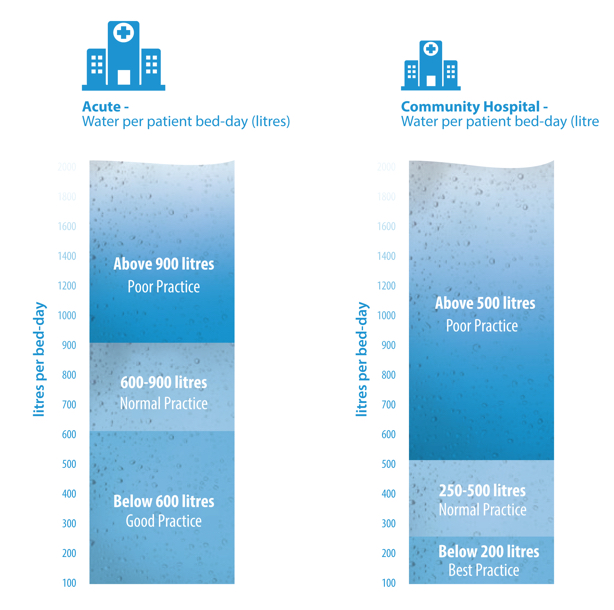
In order to start reducing the water actually used throughout the hospital, a better understanding of where, when and why water is used is needed. Through monitoring the daily use profile, strategic sub-metering of the site and surveying the main users, a water use reduction plan can be developed.
Once leaks have been minimised and a thorough understanding of water use generated, then identifying options to reduce can begin. This will firstly involve comparing your hospital to best practice benchmarks. Then, based on your site, you may want to address any number of areas including best practice flow rates, regulating pressure in the distribution system, addressing large users such as, for example, reverse osmosis or kitchen equipment.

Shower Retrofit, CUH
Cork University Hospital reduces water consumption and saves on carbon through retrofitting their showers throughout the hospital
LEARN MORE
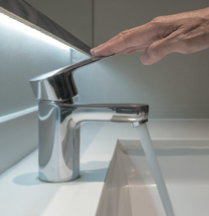
Changing taps throughout the hospital reduced water used but also reduced carbon associated with hot water provision
LEARN MORE
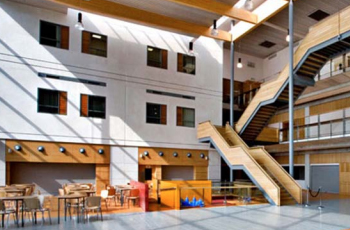
Midland Regional Hospital Tullamore saves over €12,000 per year with RO water harvesting
LEARN MORE
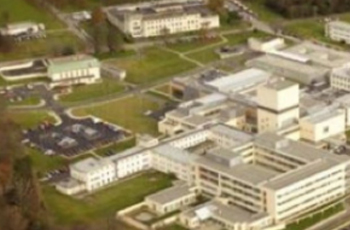
Water data logging saves Connolly Hospital €183,000 per year
LEARN MORE
Benchmarking is the best method to track the changes to the water consumption in any of the hospital and to compare to the other hospitals. Benchmarking involves gathering annual water consumption and comparing it to the number of patient bed days provided by the hospital (a standard benchmarking figure for the healthcare sector). This normalises water use data so it can be compared across hospitals on a common basis (i.e. the water used for each patient bed-day). Read more
The main objective of leak detection is to reduce the wasted water resources and expenditure, as well as preventing water contamination. The Green Healthcare programme created a water leak detection fact sheet for Irish healthcare sites.
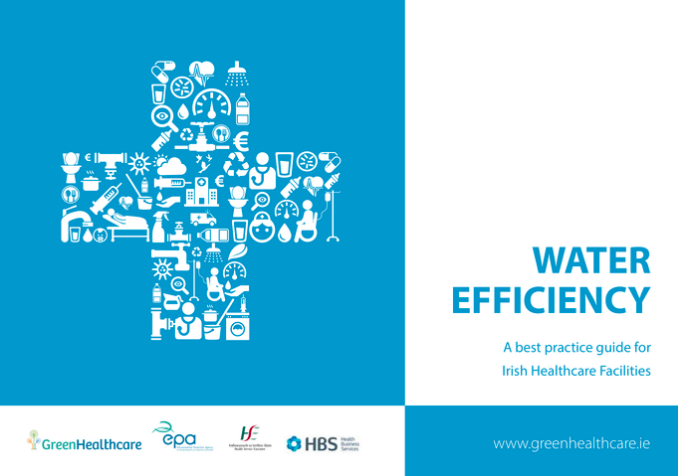 Water Efficiency Guide
Water Efficiency GuideThe Green Healthcare programme produced this guide that outlines the best practices for the efficient use of water consumption in a healthcare sites.
Read more